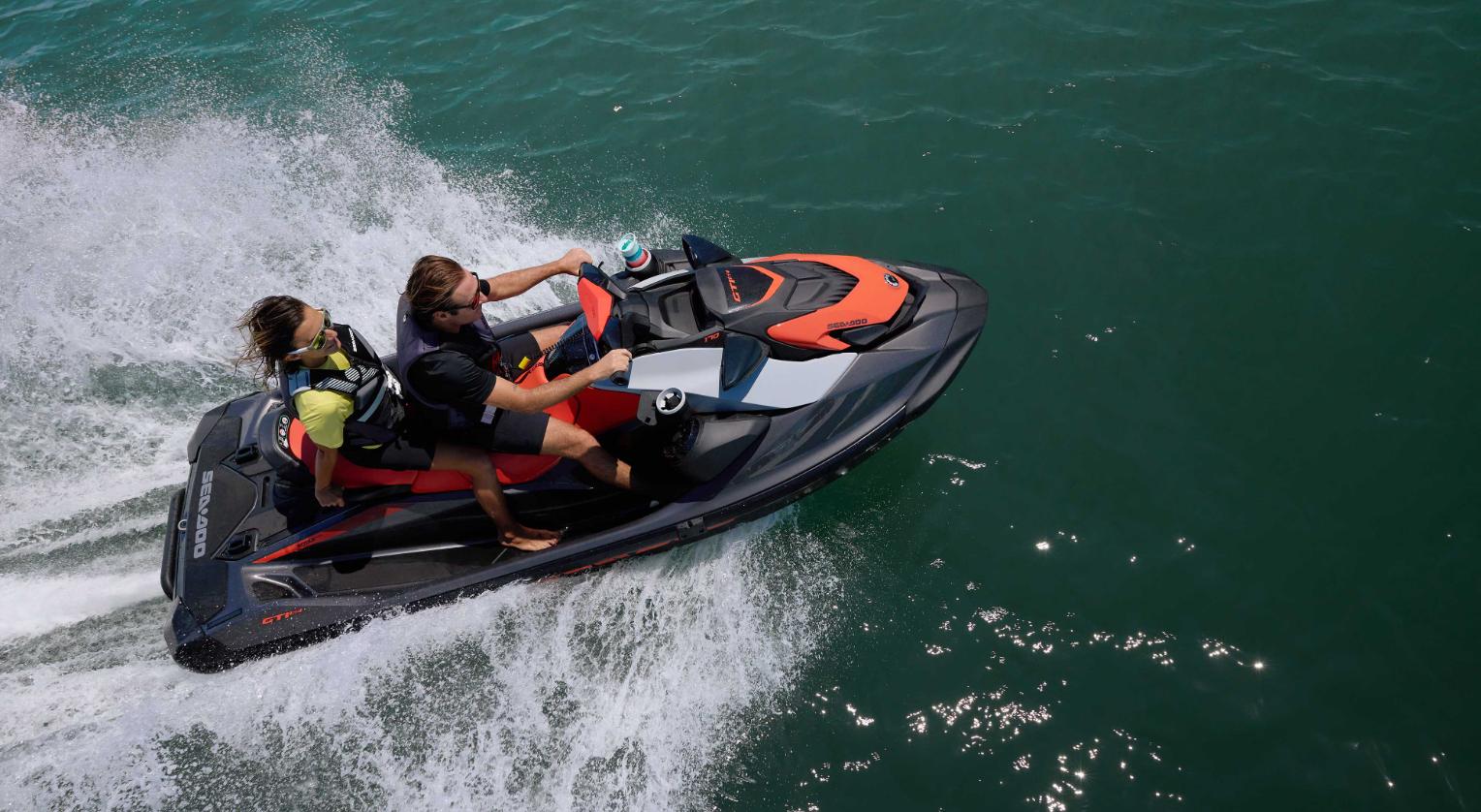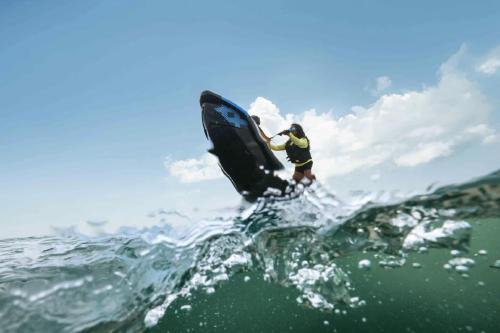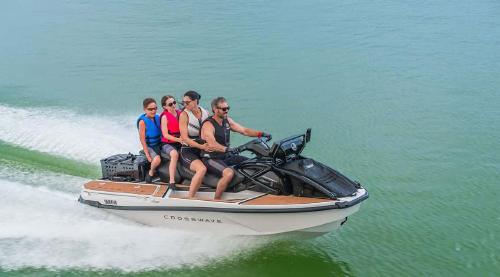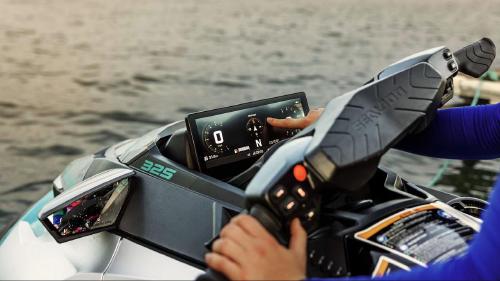Ahoy there, fellow wave riders! If you’ve ever felt the thrill of zipping across the water on a personal watercraft (PWC), you know that there’s truly nothing like it. These machines are not just a mode of transportation; they’re a passport to adventure, a way to explore the great outdoors, and, let’s be honest, a pretty darn fun way to spend a sunny afternoon!
As we set our gaze on the future, specifically the year 2025, we can’t help but wonder: what’s in store for the personal watercraft market? From price predictions to the hottest models, let’s dive into the waves of information that will help us understand what’s on the horizon.
The Current Landscape of PWCs
Before we jump into the future, let’s take a quick look at where we are today. The global personal watercraft market has been on a steady rise, with enthusiasts flocking to brands like Sea-Doo and Yamaha. Why, you ask? Well, it’s pretty simple. PWCs are low-cost, easy to transport, and require minimal storage space. You can load one onto your truck or trailer and hit the road for a weekend of fun in no time. Plus, with advancements in technology and design, these machines are better than ever!
Popular Models to Watch
When we talk about the giants in the PWC market, Sea-Doo and Yamaha are at the forefront. Let’s break down some of their most popular models that are likely to continue making waves in 2025.
Sea-Doo Spark

The Sea-Doo Spark is like the friendly puppy of the PWC world. It’s compact, lightweight, and incredibly fun to ride. With an entry-level price point, it’s perfect for those who are just starting their watercraft journey. The Spark’s playful design and customizable options make it appealing to a wide range of riders. Expect this little dynamo to remain a best-seller in 2025!
Yamaha Jet Blaster Series

On the Yamaha side, the Jet Blaster Series stands out for its affordability and versatility. It’s a great option for families and first-time users. The Jet Blaster is designed with a lightweight body that makes it easy to maneuver on the water. Plus, it has some great storage space for all your gear. In 2025, the Jet Blaster Series is likely to continue attracting buyers looking for value without sacrificing performance.
Sea-Doo GTX

If you’re looking for something a little more luxurious, the Sea-Doo GTX series has you covered. With a focus on comfort and performance, the GTX is perfect for long rides. It’s equipped with advanced technology and features that make it a top choice for seasoned riders. As the demand for higher-end models grows, the GTX is expected to remain a strong contender in the market.
Yamaha FX Series

Yamaha’s FX Series is another model to watch. Known for its power and advanced features, the FX offers a smooth ride and generous storage. With options that cater to both recreational riders and thrill-seekers, it’s a versatile choice that should continue to be popular in the coming years.
Price Predictions for 2025
Now, let’s talk numbers! Pricing is always a hot topic when it comes to PWCs. As we look towards 2025, several factors will influence the market, including technological advancements, demand trends, and economic conditions.
New PWCs
For new models, we can expect a slight increase in prices due to inflation and the rising costs of materials. However, both Sea-Doo and Yamaha have a history of offering competitive pricing, so the increases may not be as steep as you might think.
Sea-Doo Spark: Currently priced around $5,000 to $7,000, we anticipate a modest increase, bringing the 2025 price range to approximately $6,000 to $8,000.
Yamaha EX Series: With a current price of about $7,000, expect the 2025 pricing to hover around $8,000.
Sea-Doo GTX: Currently priced between $12,000 and $15,000, we predict a rise to about $13,500 to $17,000 in 2025.
Yamaha FX Series: Given that these models currently range from $14,000 to $18,000, we can expect to see prices in the ballpark of $15,500 to $19,000.
Used PWCs
The used market is where things get interesting! As the popularity of PWCs continues to grow, so will the demand for used models. This could lead to a slight increase in used PWC prices, especially for well-maintained models from reputable brands.
Sea-Doo Spark: A used Spark can currently be found for around $4,000 to $5,500. By 2025, we may see prices rise to the $4,500 to $6,500 range.
Yamaha EX Series: Expect used EX models to sell for about $5,000 to $6,500, increasing slightly to around $5,500 to $7,000.
Sea-Doo GTX: A quality used GTX could currently be found for $10,000 to $12,000, with future prices likely ranging from $11,000 to $13,500.
Yamaha FX Series: Used FX models are currently priced at approximately $12,000 to $15,000. By 2025, expect to see these models selling for around $13,000 to $16,500.
Why PWCs are Here to Stay
So, what makes personal watercrafts such a beloved choice among water enthusiasts? Let’s break it down:
Affordability
Compared to other recreational vehicles, PWCs are relatively inexpensive. You don’t need to break the bank to own one, making them accessible to a wider audience. This affordability keeps the market flourishing, especially among younger riders looking for fun on a budget.
Easy to Transport
As mentioned earlier, transporting PWCs is a breeze. Unlike larger boats, you can easily load a personal watercraft onto a trailer or truck bed. This convenience means that spontaneous trips to the lake or ocean can happen without much planning–just grab your gear, hit the road, and you’re off!
Storage Made Simple
Let’s face it; storage can be a hassle with larger boats. PWCs, on the other hand, are compact and can be stored in garages or even smaller spaces. This ease of storage makes them an attractive option for those with limited space.
Thrill of the Ride
And let’s not forget the sheer joy of cruising across the water! The adrenaline rush of speed, the wind in your hair, and the sense of freedom are hard to replicate. Whether you’re racing your friends or taking a leisurely ride, personal watercrafts offer a unique experience that keeps riders coming back for more.
The Future of PWCs
As we peer into the crystal ball of 2025, it’s clear that the PWC market is poised for continued growth. With technological advancements like electric PWCs and enhanced safety features, the industry is evolving to meet the demands of modern riders.
Electric PWCs
Speaking of technology, electric personal watercrafts are starting to make waves (pun intended) in the market. They offer a quieter, more environmentally friendly option for riders who are conscious of their impact on the water. As battery technology improves, we can expect to see more electric models hitting the market in the coming years.
 Taiga Orca Performance 2025
Taiga Orca Performance 2025
Enhanced Features
Riders are becoming more tech-savvy, and manufacturers are responding with innovative features. From Bluetooth capabilities to advanced navigation systems, 2025 is likely to bring an influx of new tech that enhances the riding experience.
Sustainability
As environmental concerns continue to grow, manufacturers are also focusing on sustainability. Expect to see advancements in eco-friendly materials and manufacturing processes, making PWCs even more appealing to the environmentally conscious rider.
Conclusion: Making a Splash in 2025
In summary, the personal watercraft market is set for exciting developments leading up to 2025. With popular models like the Sea-Doo Spark and Yamaha EX Series continuing to attract buyers, we can expect to see steady growth in both new and used PWCs.
Affordability, ease of transport, and the sheer joy of riding will keep these machines in demand. As technology advances and sustainability becomes a priority, the future of personal watercrafts looks bright.
So, whether you’re a seasoned rider or considering your first purchase, there’s never been a better time to get involved in the PWC world. Dust off those life jackets, grab your friends, and let’s make a splash as we ride into the future of personal watercrafts!




Use the share button below if you liked it.